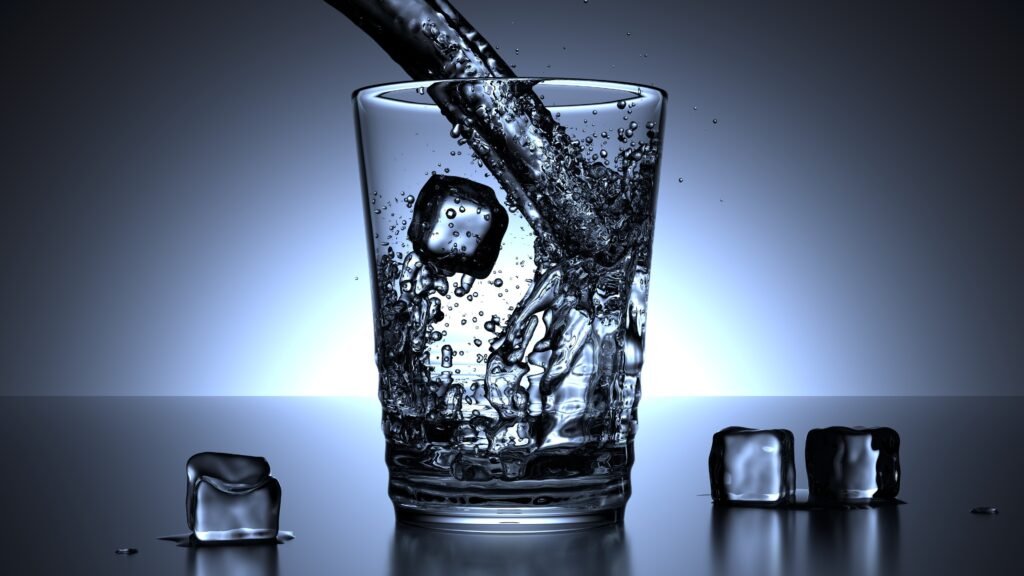"Drinking Cold Water: What Does It DO To Your Body? Let's Find Out!"
Drinking Cold Water: What Does It Do To Your Body? Let’s Find Out!
Water is the cornerstone of life, accounting for approximately 60% of an adult’s body weight. It plays a critical role in maintaining bodily functions, from aiding digestion to regulating body temperature. While hydration is a well-accepted health priority, the debate over water temperature—cold, room temperature, or warm—persists.
Cold water, in particular, has intrigued researchers and health enthusiasts alike. Its refreshing qualities make it a popular choice, but what happens when you drink it? Is it a simple thirst-quencher, or does it offer additional health benefits? In this article, we explore the potential advantages of cold water consumption, examine its impact on the body, and dispel common myths.
Health Benefits of Drinking Cold Water
Supports Weight Loss
Cold water can be an ally in weight management, offering subtle metabolic benefits. When you drink cold water, your body works harder to raise its temperature to match your internal body temperature. This process, called thermogenesis, burns extra calories.
Scientific Insight: Research indicates that drinking 500 ml of water can increase metabolic rate by approximately 30% within 10 minutes, with the effect lasting for about 30-40 minutes.
Enhances Exercise Performance
Staying hydrated is essential during workouts, but the temperature of the water you consume can also make a difference. Cold water acts as a natural coolant, helping to regulate your core body temperature.
Scientific Insight: Studies suggest that pre-cooling the body, such as through cold water ingestion, can improve endurance exercise performance in the heat.
Faster and More Effective Rehydration
Cold water is absorbed more quickly by the body compared to room-temperature water, making it ideal for rapid rehydration. After strenuous activities or exposure to heat, drinking cold water can help restore hydration levels effectively.
Scientific Insight: Proper hydration after cold exposure helps restore fluid balance, supports muscle recovery, and enhances the overall effectiveness of the therapy.
Increases Satiety and Appetite Control
Feeling unnecessarily hungry? Drinking cold water could be the trick to avoid overindulging. The cold temperature activates receptors in your stomach, signaling fullness to your brain.
Scientific Insight: Consuming water at 2 °C has been shown to reduce energy intake, which may be related to the modulation of gastric motility.
Boosts Energy and Alertness
Feeling groggy or low on energy? A glass of cold water might be the simplest solution. The sharp contrast in temperature stimulates sensory receptors in the body, triggering an adrenaline release.
Scientific Insight: Exposure to cold water has been found to affect psychomotor and cognitive functioning, potentially increasing alertness levels.
Dispelling Myths About Cold Water
Myth 1: Cold Water Harms Digestion
A common misconception is that cold water interferes with digestion by causing the stomach to contract. However, scientific research debunks this myth, showing no significant adverse effects on digestion.
Scientific Insight: While some believe that cold water may affect digestive processes, current research does not support significant negative impacts.
Myth 2: Cold Water Causes Illness
Another widespread belief is that drinking cold water can cause colds or sore throats. While cold water might aggravate symptoms for some individuals with respiratory issues, it does not directly cause illnesses.
Practical Tips for Drinking Cold Water
Incorporate It Into Daily Life: Start your day with a glass of cold water to jumpstart your metabolism.
Pre-Workout Prep: Drink cold water before and during exercise to stay hydrated and regulate your body temperature.
Post-Workout Recovery: Follow up intense workouts with cold water to aid in rehydration and reduce muscle fatigue.
Hydration Goals: Aim for at least 8-10 glasses of water daily, adjusting for activity level and climate.
Listen to Your Body: If cold water feels uncomfortable, switch to a temperature that suits you better.
Why Cold Water Stands Out
Compared to warm or room-temperature water, cold water’s refreshing qualities and added health benefits make it an appealing choice. From boosting your metabolism and enhancing physical performance to improving hydration and mental focus, cold water plays an essential role in supporting an active, healthy lifestyle.
However, like any health habit, balance is key. While cold water is beneficial for most people, individuals with specific health concerns, such as sinus sensitivities or cold-triggered migraines, should consult with a healthcare professional.
Conclusion
Drinking cold water offers a host of benefits, from increasing metabolic rate and aiding weight management to enhancing workout performance and improving hydration. While myths surrounding cold water consumption exist, scientific evidence supports its positive effects on the body. By incorporating cold water into your daily routine, you can experience its refreshing and health-boosting potential.
Whether you’re looking to stay hydrated, improve workout performance, or simply enjoy a refreshing beverage, cold water is an easy, natural way to enhance your well-being.



